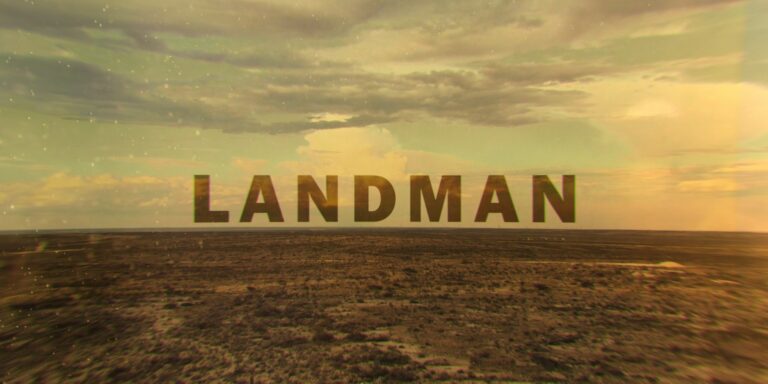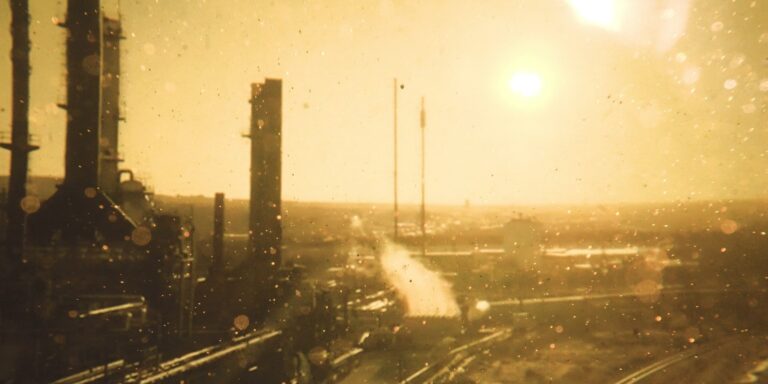Taylor Sheridan, the guy behind gritty epics like Yellowstone and 1883, takes a hard right turn into the modern-day oil patch with Landman. Set in the heart of Texas oil country, the series barrels full-throttle into the world of fracking, finance, and fierce ambition. It’s packed with swagger, Southern drawls, and enough tension to snap a drill pipe in half. But here’s the million-dollar question: while the drama’s slick and the stakes are sky-high, is Landman actually talking about the elephant in the oil field – the environmental cost?
Let’s take a deeper look at what the show says (and sometimes doesn’t say) about the energy conversation that’s very much alive outside the screen.
Wind Warnings or Hot Air?
Right off the bat, Landman makes its feelings about renewable energy known – and not in subtle ways. In one eyebrow-raising scene, Billy Bob Thornton’s character, Tommy Norris, trashes wind energy. He claims the carbon footprint of manufacturing and installing wind turbines is so huge, they never pay it back. According to him, it takes two decades for a turbine just to offset the damage it caused getting built.
Sounds dramatic? That’s because it is. And it raised some serious eyebrows in the real world too. Newsweek ran a fact-check that called the claims “misleading and false,” pointing out that wind turbines typically offset their emissions in just a few months, not years. So while Tommy may talk a big game, the science doesn’t back him up.
But what’s more interesting is this – no one in the scene pushes back. No character throws out an alternative view. The show lets the line hang in the air like gospel. Is that a conscious choice to reflect the oil patch mindset? Maybe. Or maybe it’s an example of how Landman echoes the rhetoric often heard in real-life energy circles.
The Fracking Factor
Fracking, that controversial process that cracked open shale plays across the U.S., plays a starring role in the series. And it should – it’s the economic engine driving the drama. But when it comes to the environmental blowback of hydraulic fracturing, Landman takes a softer approach.
Sure, the show nods to fracking’s link to earthquakes. One storyline even touches on tremors in Oklahoma, but it pivots the blame to wastewater injection wells, not fracking itself. That detail matters. While technically correct – wastewater disposal is a big part of the quake problem – the connection to fracking operations is still very real.
This narrative move reflects a kind of real-world PR play. It’s not inaccurate, but it shifts the lens. Instead of zooming in on how fracking reshapes entire ecosystems, the show zooms out and focuses on industry challenges and shareholder drama.
Where Are the Locals?
Now, let’s talk community. Because in real oil towns, the locals always have something to say. Whether it’s about water safety, noise pollution, or land rights, people push back. But in Landman, that kind of resistance is barely a whisper.
There’s a scene in Episode 3 that flirts with the idea. Rebecca Falcone, a sharp corporate consultant, gets a lecture on how the oil industry supposedly makes green energy possible. Her colleague argues that without petroleum, you can’t even build a solar panel. It’s a clever bit of logic-twisting that suggests oil is the real unsung hero of the clean energy revolution.

The show seems more interested in this corporate logic than in the voices of people on the ground. The nearby communities – the ones breathing in the fumes, the ones watching their water turn cloudy – mostly stay in the background.
Greed Gets a Spotlight
But here’s where things get juicy. While the show might lean pro-oil in its dialogue, it doesn’t give its characters a free pass. Monty Miller, the oil tycoon, isn’t exactly painted as a hero. He’s dealing with fraying family ties, irate investors, and a personal life that’s one stiff drink away from imploding.
His downfall, and others like it, act as a quiet critique. Sure, oil brings in the bucks. But it also brings stress, betrayal, and plenty of human wreckage. In this way, Landman might be offering a subtler, more cynical take on the whole boomtown fantasy. It’s not environmental activism, but it’s not blind celebration either.
So maybe the message is: oil gets you rich, but at what cost?
Between Boom and Backlash
In the end, Landman seems caught between two storylines. One is the gritty American dream of building an empire from dirt and diesel. The other is the inescapable reality of a planet heating up, regulations tightening, and public sentiment shifting.

The show doesn’t pretend to be a documentary, and it shouldn’t. But when its characters make bold claims about energy, and the script leaves them unchallenged, it shapes a narrative that some viewers might take at face value. That matters, especially in a time when facts about climate change and energy sources are so politicized.
And yet, Landman offers more than just one-liners and boardroom brawls. It gives us a glimpse into the complexity of this industry – a world full of contradiction, charisma, and consequences. It doesn’t always get it right. Sometimes it leans too hard on myth. Other times, it reveals uncomfortable truths with a wink.
What Lurks Beneath the Surface
So, is Landman the mouthpiece of Big Oil? Not exactly. But it’s also not the whistleblower some viewers might hope for. It’s somewhere in the middle – muddy, like a well site after a rainstorm. And maybe that’s the point.
This is a show built on tension: between profit and principle, progress and preservation, fiction and fact. And as with any good drama, the real story often lives in the grey areas. The question is, are we watching with our eyes wide open?
Because beneath the cowboy hats and crude oil contracts lies a conversation we’re all part of. Whether we’re living it, debating it, or just watching it play out on screen.




